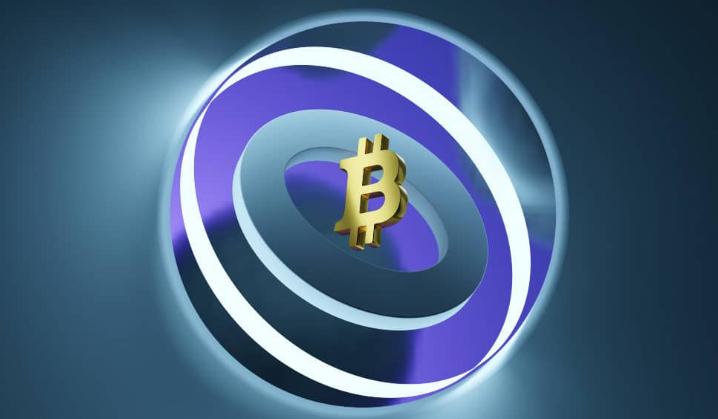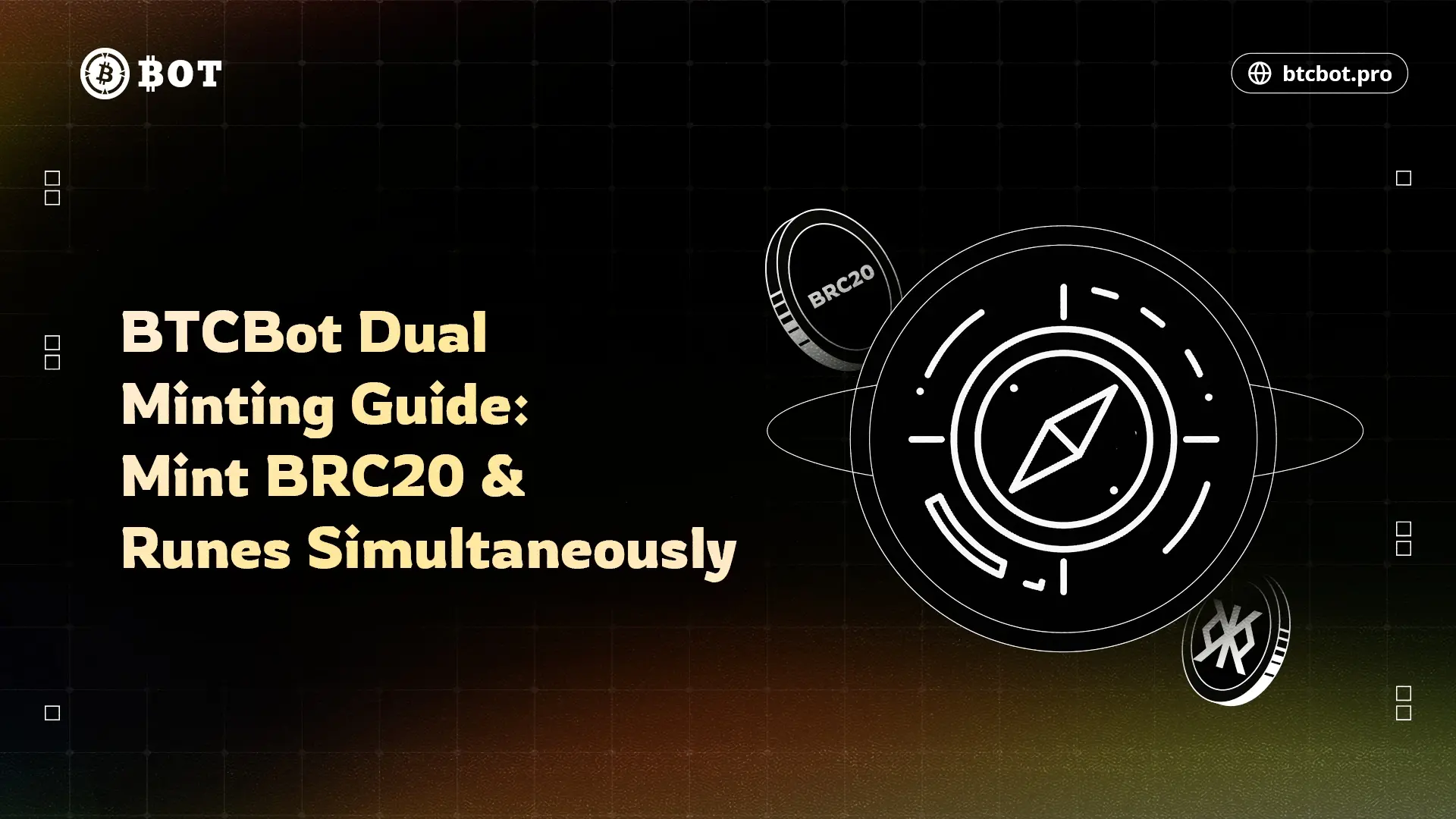Will the controversy over the BRC20 index upgrade lead to a "fork"?
Author: Xiyou, ChainCatcher
Recently, BRC20 has been embroiled in a "fork" controversy. Unisat insists on following the Ordinals upgrade but has faced opposition and criticism from BRC20 founder Domo, leading to a dispute that has exposed the power struggle behind the BRC20 protocol.
Currently, the total market value of BRC20 tokens is approaching $10 billion, making it one of the hottest and most popular products in the Bitcoin ecosystem, with every move it makes capturing the attention of crypto users. The outcome of this controversy will determine whether BRC20 and the Ordinals protocol develop in sync or drift apart.
Why is the controversy over the BRC20 upgrade so closely watched? Will it lead to a "fork"?
Unisat's Insistence on the Ordinals Jubilee Upgrade Sparks BRC20 "Fork" Power Struggle
A notice from Unisat following the Ordinals upgrade has triggered a battle among BRC20 indexers, escalating it to a power struggle behind the BRC20 protocol.
On January 2, Bitcoin inscription infrastructure UniSat announced that it would adhere to the Ordinals Jubilee upgrade and ensure that BRC20 continues to operate on Ordinals without splitting into an isolated protocol. Additionally, a white paper will be released on January 31.
UniSat claims this is the best gift provided to BRC20, Ordinals, Bitcoin, and community users since February 2023.
However, this statement from Unisat has been met with opposition and criticism from BRC20 founder Domo, who stated that UniSat's actions could lead to conflicts in the BRC-20 accounting standard, attempting to "fork" BRC20 and seize control of the BRC20 protocol, urging community users to reject Unisat's upgrade.
In response to Unisat's insistence on following the Ordinals upgrade, BRC20 founder Domo expressed that Unisat's commitment to the Ordinals Jubilee upgrade has not considered the serious consequences it may cause, and the introduction of these updates to BRC20 is reckless, ignoring the interests of their fellow indexers and potentially harming the overall interests of the BRC20 user community. He believes this is not a one-time technical-driven action by Unisat, but rather a well-planned strategic move to seize control of the protocol.
Domo explained that the Ordinal 0.8/0.9 upgrade incident highlighted the complexity of integrating new updates into the BRC20 standard. While he also desires to implement protocol improvements, it is clear that without a strong testing, coordination, and verification infrastructure being built, these changes could be unsafe.
Domo also added that L1Fxyz, a non-profit foundation dedicated to ensuring the BRC20 standard remains free from centralized corporate control, is currently maintaining an indexer with the explicit intention of ensuring the safety of all funds in BRC20 assets. Together, we urge the entire BRC20 community to reject the fork proposed by Unisat and support a non-profit, security-first approach to maintaining the protocol.

As the founder of BRC20, Domo's statement quickly fermented in the crypto community, and the question of whether Unisat and Domo will insist on the Ordinals upgrade has sparked a power struggle over the BRC20 fork.
Why Don't BRC20 Indexers Update with the Ordinals Upgrade?
As a product built on the Ordinals protocol, why is there so much debate over UniSat's insistence on following the Ordinals upgrade? Why is this referred to as the "BRC20 indexer battle," and what does it have to do with BRC20 indexers?
At this point, it is necessary to understand how BRC20 tokens operate. BRC20 is an experimental format standard for issuing fungible tokens created by Domo in March 2023 based on the Ordinals protocol, while Ordinals is a system for numbering and tracking the smallest unit of Bitcoin, satoshis (sats).
Thus, BRC20 is a meta-protocol built on the Ordinals protocol, which in turn is built on Bitcoin. However, since BRC20 is a token standard without smart contract functionality, it currently relies on centralized indexers to maintain the balance state of the entire system and track relevant trading data for BRC20.
The so-called indexer is a database that can read and register all BRC20 transaction data, such as checking which inscription is the first to deploy a new token, tracking changes in wallet balances of minted tokens, and related transaction address data.
In simple terms, the final "data layer" of Bitcoin has BRC20 tokens inscribed on Bitcoin sats through the Ordinals protocol, and the indexer database tracks and records BRC20 token transaction data and account balance changes issued by Ordinals.
Since Ordinals is a brand new protocol, Casey and many Ord developers are still continuously upgrading and iterating, having released multiple versions over the past year. Among them, the Ordinals Jubilee upgrade released version V0.13.0, primarily to fix bugs in cursed inscriptions. Different versions of Ordinals may bind inscriptions differently, which could lead to errors in the BRC20 index database, reporting incorrect balances.
In October last year, users discovered that the serial index of BRC20 tokens had issues, with various exchanges running different versions simultaneously, which could lead to double-spending problems and asset losses, prompting other users to refrain from trading BRC20 tokens. Subsequently, Unisat found that the issue stemmed from inconsistencies in the BRC20 index due to different versions of the Ord software.
Additionally, some found that inscriptions #35321413 and #35329860 could be indexed by version 0.9.0 of the Ordinals protocol but not by versions 0.7.0 and 0.8.0. Due to different markets adopting different versions of the Ordinals protocol, some inscriptions could not be correctly indexed in certain markets, leading to actual inscription number offsets.
To maintain index stability, on November 9, after Bitcoin block height 816000, the BRC20 index standard was "frozen" at Ord v0.9, requiring all BRC20 indexers in the market to synchronize with Ordinals 0.9.0, and no longer follow upgrades to the Ordinals protocol.

The reason for implementing this regulation is that, in terms of TVL, users, infrastructure, wallets, and market capacity, BRC20 has already become a large-scale protocol. Currently, the total market value of BRC20 tokens has exceeded $10 billion, with the number of issued tokens exceeding hundreds of thousands, and with support from CEX exchanges, the number of users holding BRC20 tokens is substantial. Ensuring the safety and stability of BRC20 assets has become the top priority. If innovation leads to user asset losses, it would cause significant harm to the BRC20 ecosystem.
However, now that UniSat has decided to follow the Ordinals Jubilee upgrade, this could lead to two different indexing standards for BRC20 on Bitcoin, meaning that one accounting standard is for those choosing to upgrade the indexing system, while another is for those not upgrading. This could result in discrepancies in the rules of the accounting system, leading to different balances for users in different places or mismatched account balances, which would fragment the BRC20 market due to the differing Ord version indexing standards.
Of course, the BRC20 indexing standard will remain at version 0.9.0, and if the Ordinals protocol iterates to a more stable new version in the future, this standard should also change accordingly, similar to how node clients on the Bitcoin and Ethereum networks are updated with system upgrades. Domo has also stated on the L1F forum that he is considering a maintenance mode to gradually accept the Ordinals upgrades, meaning freezing first and upgrading later.
Will the Index Upgrade Controversy Lead to a BRC20 Fork?
Currently, there are three main viewpoints in the crypto community regarding whether the BRC20 index should follow the Ordinals upgrade: coexistence faction, freezing faction, and upgrading faction.
The coexistence faction refers to the simultaneous existence of the freezing faction and the upgrading faction, but this may lead to community division and confusion over BRC20 asset balances; the freezing plan means remaining frozen at Ord 0.9, which would isolate BRC20 from the Ordinals ecosystem; the upgrading plan refers to all BRC20 indexers unifying to upgrade to the latest version of Ord, which would lead to instability during the transition period. The freezing faction may compromise and join the upgrading faction, potentially leading to instability during the transition period.
Members of the L1F organization, led by Domo, hope to delay the upgrade because a hasty upgrade could lead to more errors. First, Domo publicly opposed Unisat's upgrade, and then another representative from L1F, the ordinal aggregator BestinSlot, stated yesterday that a serious bug affecting the accuracy of BRC20 balances was found in version v0.13.1 of the Ordinals protocol, strongly recommending BRC20 indexers to stick with version v0.9.0 to maintain protocol stability. The tweet also pointed out that there may be other bugs affecting the BRC20 protocol in version v0.13.1, and stability is the top priority for BRC20, which cannot afford continuous, untested upgrades worth tens of billions of dollars.

However, the founder of the decentralized indexing protocol Trac stated that BRC20 indexers sticking to version 0.9.0 forever is not the correct solution; we need an upgrade path that requires testing weeks to months in advance before switching to a new version.
BestinSlot responded that freezing to version 0.9 does not mean forever; this has always been a temporary stability solution until the ecosystem finds a good upgrade path, but rushing to upgrade is definitely not a good choice right now.

The primary supporter of the upgrading faction, Unisat, hopes to push the BRC20 protocol forward, stating in an interview with Decrypt that the Jubilee upgrade is significant for both Ordinals and BRC20. For Ordinals, this upgrade can fix historical issues, and although new problems may arise during the BRC20 upgrade process, these can be resolved in subsequent patches. The long-term benefits of the Jubilee upgrade for the entire ecosystem are worth it.
UniSat also explained that the initial agreement to freeze at 0.9 was because it was understood to be a temporary measure, but when freezing could evolve into a permanent separation from the Ordinals protocol, it threatens future compatibility with the Ordinals protocol. UniSat chose to take proactive action rather than permanently separate. Despite the potential for fragmentation, UniSat still hopes to keep pace with the development of Ordinals, allowing BRC20 to interact seamlessly with other protocols on the same platform.
Regarding the upgrade, UniSat's founder stated that to ensure its smooth execution, other ongoing tasks have been postponed. Personally, I have canceled all meetings this week to focus entirely on the upgrade.
Regarding the current controversy surrounding BRC20, user @lilyanna_btc stated that whether it results in a split or insists on freezing without upgrading, it will bring significant flaws to the BRC20 protocol (such as high costs, inconsistent inscription numbers, etc.), allowing protocols (like CBRC20) that claim to optimize to take advantage of the situation. Additionally, the Ordinals ecosystem faces the continuous emergence of Atomicals and other protocols in the Bitcoin ecosystem, with competition gradually intensifying. As the most successful product of the Ordinals protocol, neither forking nor forcibly freezing without upgrading is the best choice for BRC20.
Some users also expressed concern about what changes in regulations related to the upcoming Jubilee might affect the BRC-20 index. If regulatory changes impact the index, then the BRC20 protocol should publicly disclose and adhere to the regulatory agreements. Currently, there has been no explanation from any relevant parties, rather than a direct discussion on whether to upgrade.
It is evident that both Ordinals and BRC20, as emerging entities, still have various vulnerabilities and issues that need continuous addressing.
Now, BRC20 stands at a crossroads, and whichever direction it ultimately chooses will have far-reaching implications for its future.










